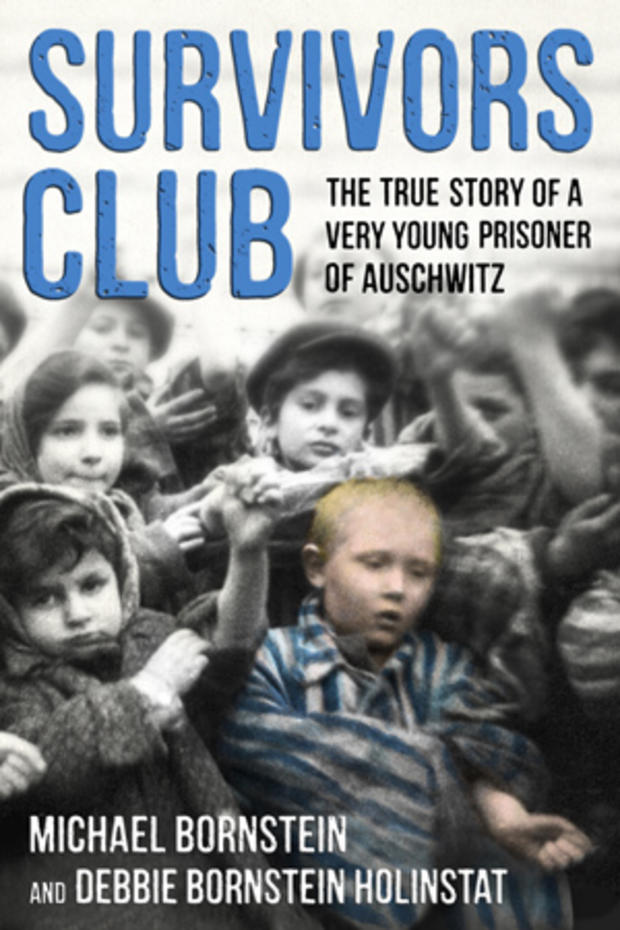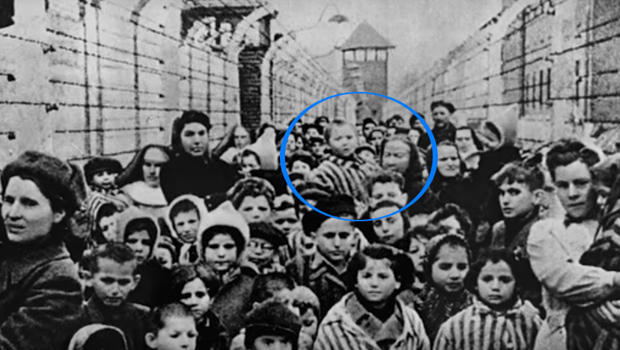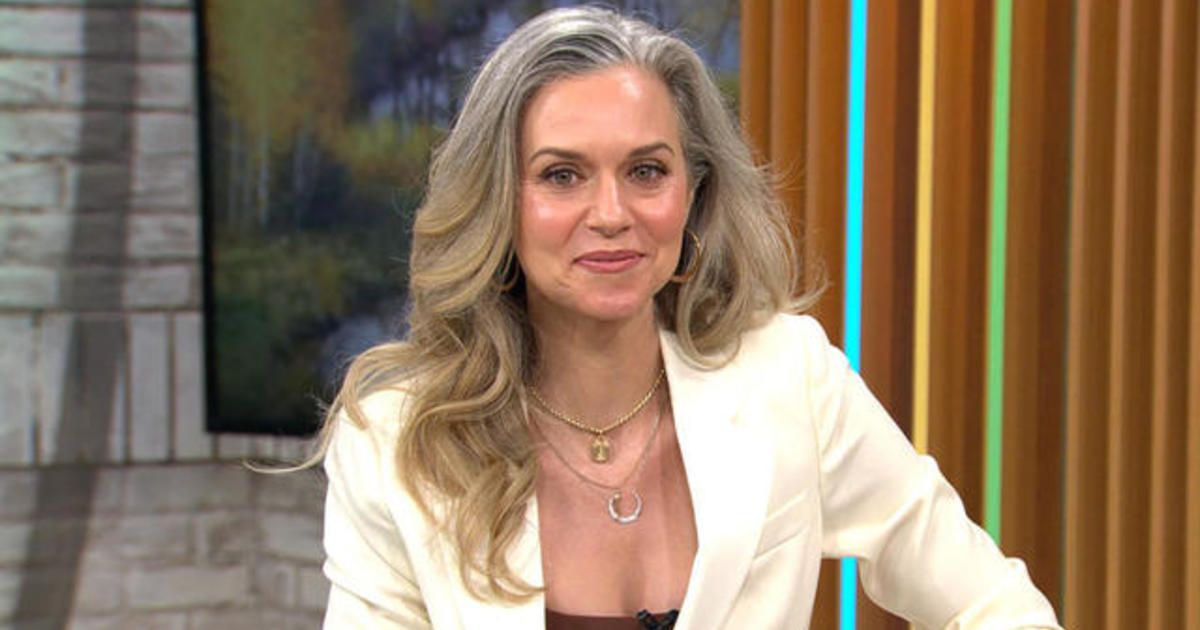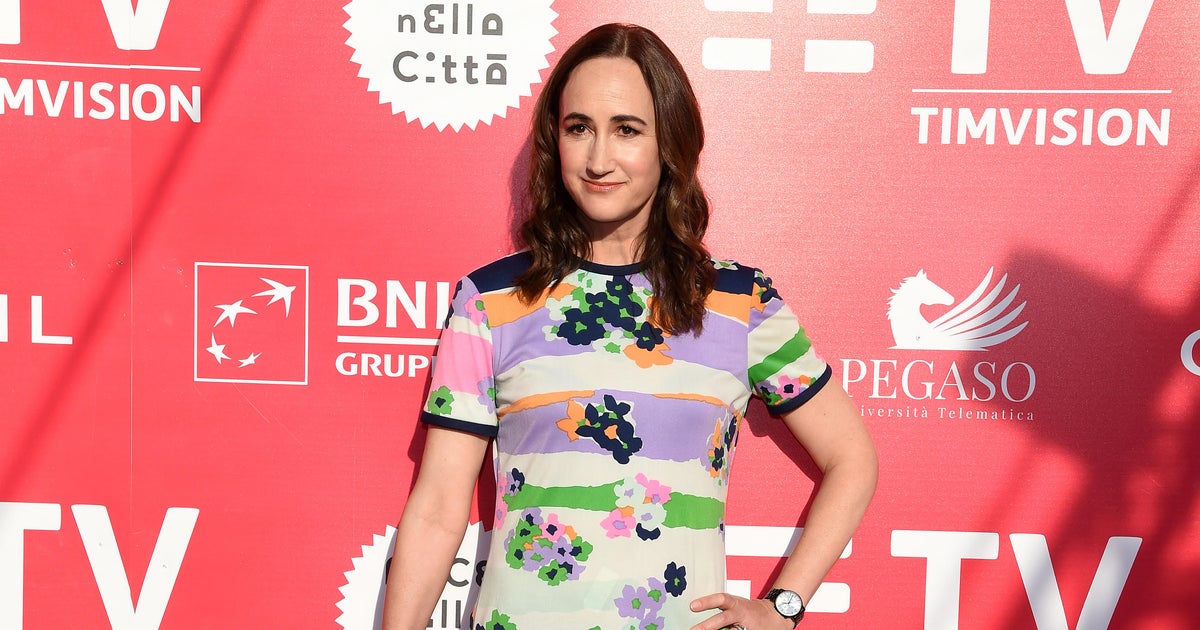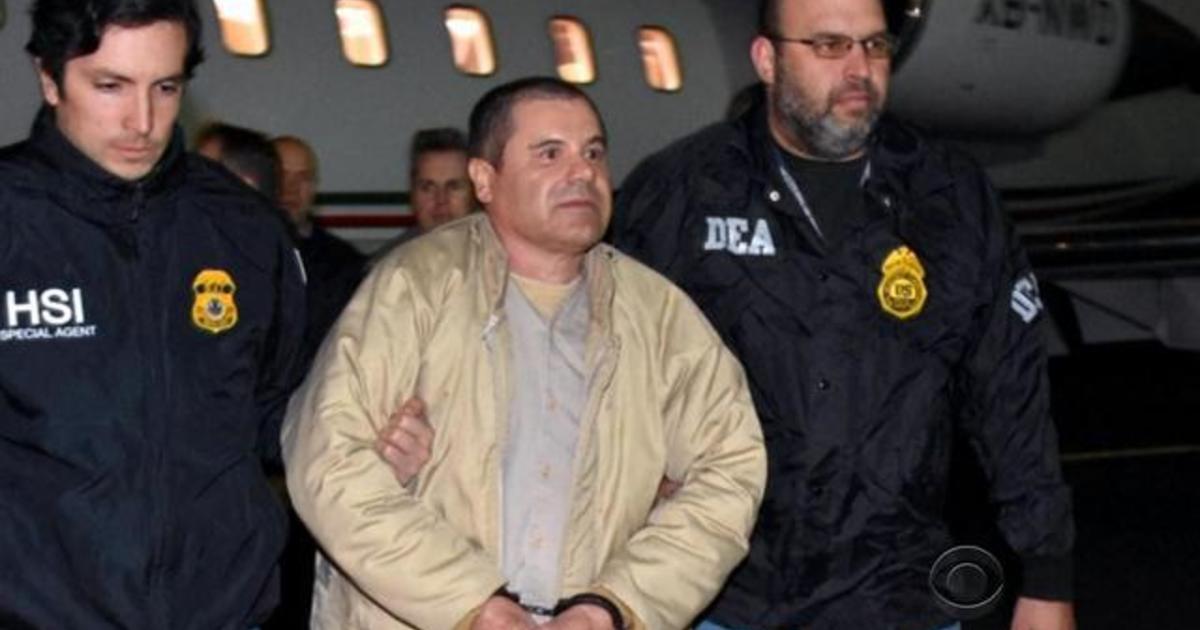Book excerpt: "Survivors Club: The True Story of a Very Young Prisoner of Auschwitz"
In the New York Times-bestselling memoir "Survivors Club: The True Story of a Very Young Prisoner of Auschwitz" (Farrar Straus Giroux), Michael Bornstein (along with his co-author, Debbie Bornstein Holinstat) writes about his horrifying experience as a child who, at age four, was in the Nazis' concentration camp with his grandmother when the Soviet Army liberated the camp in 1945. The book presents an account by turns shocking and sobering of a family decimated by the Nazis' genocide, of hope, and of survival.
Read two excerpts below depicting Bornstein's arrival at Auschwitz, and the departure of his mother. Don't miss Martha Teichner's report marking the 75th anniversary of the liberation of Auschwitz, and an interview with the authors, on "CBS Sunday Morning" February 16!
"Alle raus!" they shouted. Everybody out!
The glaring sun hurt our eyes and a terrible smell attacked our noses. Just seconds before, we had been squarely focused on getting some fresh air for Samuel and some cool water for me. Suddenly, we could only think of that wretched smell, far more offensive than anything we'd endured on board the train. I don't know how to describe it. Harsh and revolting – it was the smell of burning flesh.
Even before we climbed down from the wooden boxcar, we could see a scene like nothing any of us had witnessed in the past. Hundreds of grotesquely skinny humans, with barely enough flesh to cover their bones, were lined up for what appeared to be a head count just beyond the fence. They looked straight ahead as if programmed not to move – or maybe they didn't have the energy.
Far in the distance, there was a wide chimney in the skyline that poured thick, rancid smoke into the air. Even farther away, smoke seemed to billow from other places – from more ovens to cremate the bodies of murdered prisoners, we would later learn.
In front of us, skeleton-like people swept ashes off the ground. Ashes and soot often fell over the camp like gray snow. The prisoners wore striped uniforms that hung off them like skin hangs from raw chicken. No clothes could be narrow enough to properly fit these people whose bodies were decaying, even while their hearts were still beating.
Papa slid his thin frame through the tightly packed mass of bodies disembarking from the train car and cleared a path for us. "Let's all hold hands," he said. "The guards will see we belong together and, let's hope, will bunk us as a family."
The guards were all carrying either leather whips or wooden clubs. Some had attack dogs by their side.
An older man who had made gurgling noises on the ride was now slumped in an awkward pile at the edge of the boxcar. Bobeshi rarely carried me anymore, but she snatched me up off my feet and pressed my face into her shoulder, trying to shield me from seeing what I later realized was a dead body. That man was not the only passenger who had died on the long trip. The heat, hunger, and shortage of air had claimed several lives.
Auschwitz was a monstrous complex of camps and sub-camps and it's likely we were delivered to a section called Birkenau. That means we missed seeing the infamous sign at the main gate that read ARBEIT MACHT FREI (Work makes you free). The SS guards – the elite group of German soldiers who controlled Auschwitz – wanted us to believe that if we worked hard and followed the rules, everyone would be all right. ...
An Unexpected Departure
The Nazis were nothing if not efficient. They made use of as many healthy Jewish prisoners as possible, souring their concentration camps often to round up the best workers for particular jobs.
One day at roll call, a group of officers in sharp uniforms appeared and demanded that every woman in my mother's unit run laps around an enclosed ring, like horses being put through their paces at a show. The women had to strip naked first. The SS wanted to see how much fat the women had left on their bodies. Women so skinny their bones jutted out in all directions wouldn't do. They wanted to pick the healthiest women – and the process had the added benefit of completely humiliating the prisoners.
My mother, like all of the other undernourished women at the camp, tired quickly but was determined not to reveal her fatigue. She ignored the sharp pains at the bottom of her toes every time she set a foot down. She had horrible festering blisters yet didn't dare complain. Even something like blisters on your feet could get you labeled "unfit to work," a guaranteed death sentence.
Every time Mamishu passed the officers she inhaled to hide her loud panting. Bobeshi tried to do the same but was unsuccessful. In very short order, her sprinting turned to jogging and her jogging turned to walking.
The women were allowed to dress. Then ten women were picked from the crowd; my mother was one of them. The chosen few were then interrogated.
"What skills do you have? What experience?"
"Oh, I can expertly pack ammunition," Mamishu boasted. She told them of her work at Pionki.
From her experience, Mamishu knew that packing ammunition required much less physical labor than most of the work at Auschwitz. She hoped she could be reassigned to similar work.
"Look at my tiny fingers," she said, holding up her petite hands. "Perfect for bullet packing!" she trilled in broken German. "My mother-in-law – she's just over there – is a real expert, too!"
The men weren't interested in Bobeshi, though.
"What's your number?" they barked at my mother.
Mamishu pulled up her sleeve and displayed her tattoo. One officer wrote her ID down on paper, and in that moment my mother's fate was sealed.
"You have fifteen minutes to clean yourself up and report to the front gates. You will be leaving Auschwitz."
Mamishu was being sent away to a labor camp in Austria. For other women, this would have been welcome news. But Mamishu felt like she had just walked into a trap. She thought about protesting, but what would she say? My son is here, hiding away in the shadows. He'll die if I'm not here to protect him. I can't leave! No, there was nothing my mother could do or say.
Mamishu raced to the bunk where I was hiding. She rustled the straw mattress and panicked when she saw I wasn't there.
At that moment, I giggled from behind a wooden crate in the corner of the room. Sometimes I would move from hiding place to hiding place for a change of scenery during the day, and I was happy to see Mamishu appear in the middle of the afternoon.
She didn't look happy at all.
"Michael, I have to go, my darling," she told me as tears streamed down her face. "I promise, I will see you again someday, zeisele. We'll be free and I will find you. But right now, I have no choice. I have to leave you for a little while."
She offered no specifics about when we would be reunited. She only promised that Grandma Dora would keep me safe and make sure I had enough to eat and drink.
"Tell Bobeshi that I love her," Mamishu said. "You two take care of one another."
I wanted to cry, but I was careful to keep my own promise at Auschwitz. I said nothing. I just kissed my Mamishu on the cheek and crawled under my pile of straw as she left. I packed an extra handful of straw over my toes and a handful over my face, then waited quietly for my grandmother's return. Heartbreak was starting to feel as natural as hunger and fear to me. I was numb with hurt.
From "Survivors Club: The True Story of a Very Young Prisoner of Auschwitz" by Michael Bornstein and Debbie Bornstein Holinstat, published by Farrar Straus Giroux. © 2017 by Michael Bornstein and Debbie Bornstein Holinstat. Reprinted with permission.
For more info:
- "Survivors Club: The True Story of a Very Young Prisoner of Auschwitz" by Michael Bornstein and Debbie Bornstein Holinstat (Farrar Straus Giroux), in Hardcover, Trade Paperback, eBook, and Audio formats, available via Amazon
- survivorsclubbook.com
